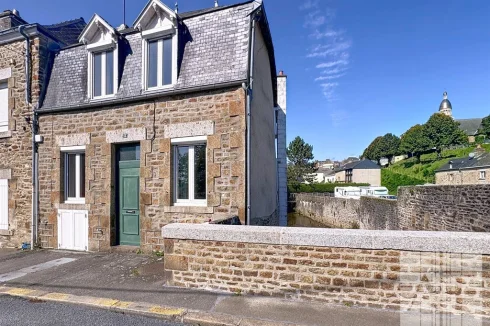Notaires and Money Laundering
Friday 06 October 2017
The French notaires need to do more to combat criminal activity, according to the French anti-money laundering agency.
It is a figure that has remained stable since 2011, despite the fact that money laundering reports to the agency by other professionals with legal reporting obligations – banks, avocats, accountants, estate agents - increased by 44% last year, and the number of investigations conducted by the unit were up by 28%.
In total, there were over 62,000 reports made to the unit, 80% of which were made by the banks.
Given the increase in property transactions in 2016 over 2015, Trafcin expressed surprise at the lack of progression in the number of reports by notaires. Last year sales were over 850,000, compared to 800,000 the previous year.
They considered that, given the declarative potential of the profession, and its exposure to the risks of money laundering, there existed ‘significant room for improvement’.
Not only were the reports somewhat sparse, but they also came from a relatively small number of notaires. Only 13% of notaires signaled a suspicious transaction, which Trafcin considered was due to a more active approach by some notaires.
Three regions - Ile-de-France, Provence-Alpes-Côte d’Azur et Auvergne Rhône-Alpes – accounted for 59% of the total number of reports received.
Interestingly, most declarations concerned property acquisitions valued between €100K and €500K.
Trafcin were also critical of the quality of the declarations made, considering that many were presented in a ‘laconic’ manner, which made it difficult for the unit to understand what elements made the notaire suspicious of the transaction.
The main types of suspicious transactions identified by the notaires were sums of money that appeared to be the proceeds of crime which the parties were trying to place into the legal economy. They also reported on cases of organised criminality (notably from foreign buyers), on suspicions of misappropriation of funds through corporate bodies, and of suspicion of tax fraud.
Factors that lead the notaires to report the cases included:
- The difference between the issuer account and the receivable account after a restitution of funds following a cancellation of a sales contract;
- The existence of a substitution clause in the sale contract, and the beneficial owner suddenly changing;
- Underestimating or overestimating the value of an asset.
More broadly, the report from Trafcin notes a significant increase in cooperation with UK based authorities stating: "une forte progression de la coopération opérationnelle sur des sujets criminels est à noter."
In relation to Jersey/Guernsey it notes: "réception de nombreuses trans-missions spontanées de la part de ces CRF (cellules de renseignement financier) concernant des Français ayant des avoirs dont il n’est pas certain qu’ils soient déclarés à l’administration fiscale ou des citoyens britanniques résidents fiscaux en France"
Thank you for showing an interest in our News section.
Our News section is no longer being published although our catalogue of articles remains in place.
If you found our News useful, please have a look at France Insider, our subscription based News service with in-depth analysis, or our authoritative Guides to France.
If you require advice and assistance with the purchase of French property and moving to France, then take a look at the France Insider Property Clinic.





